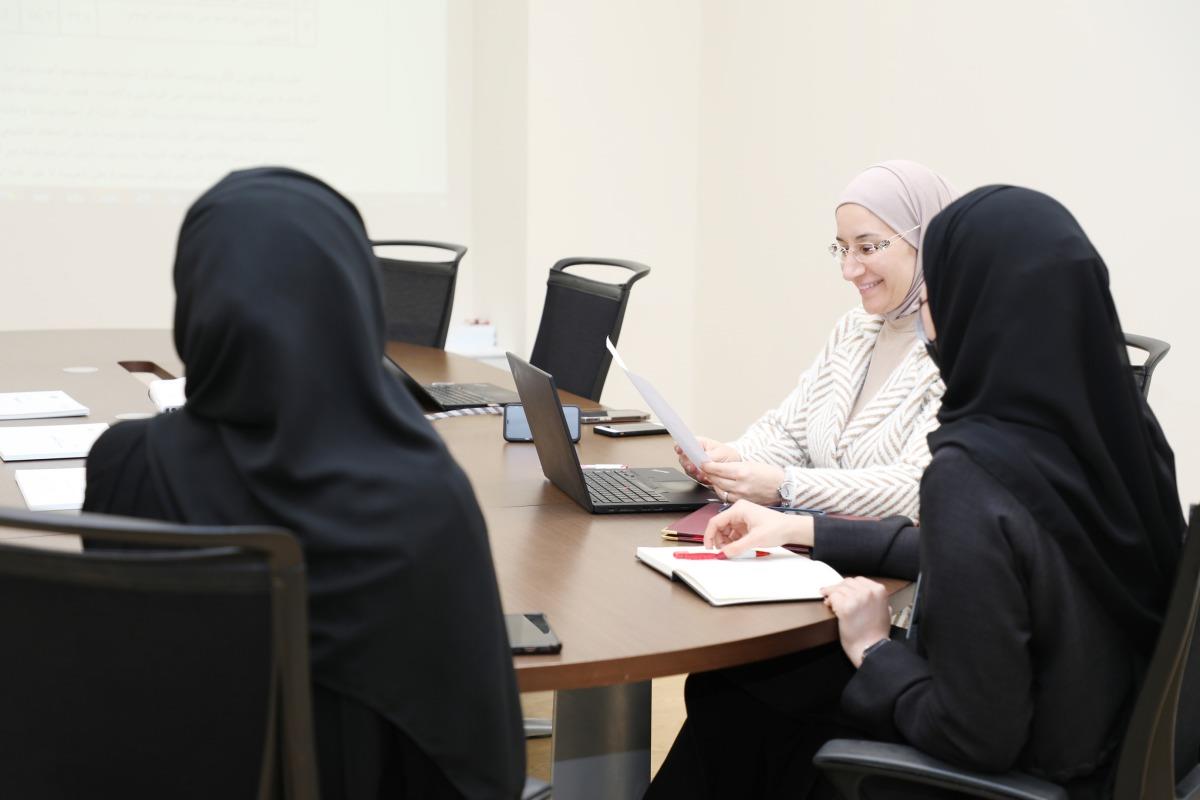
Study Reveals Balancing Tradition And Modernity Among Qatari Families
Doha, Qatar: The Ibn Khaldon Center for Humanities and Social Sciences at Qatar University (QU) has presented a comprehensive study on the Qatari family's structure and functions, authored by Research Assistant Afrah Al Otaibi. This study delves into the intricate balance Qatari families maintain between deep-rooted traditions and the evolving demands of modernity, influenced heavily by globalisation and Western ideologies.
The study, titled“Qatari Family's Structure and Functions: Balance between Tradition and Modernity,” aimed to answer a central question: Does the Qatari family represent a traditional or modern intellectual model? This investigation addresses several sub-questions, including the structure and elements of the Qatari family, its functions, the roles of its members, and prevailing behaviours and traditions.
In the face of global transformations and significant events such as globalization and pandemics, Qatari society, like other Arab societies, is experiencing profound impacts. The choices imposed by soft foreign policies and the interference of Non-Governmental Organizations (NGOs) dealing with sensitive issues such as family, women, education, and religion add further complexity to these challenges. Amidst these changes, the Qatari family system finds itself at the crossroads of tradition and modernity, striving to maintain a balance between deeply rooted Arab traditions and Islamic values, as well as the modern influences brought about by globalization and openness to universal values, particularly those of a Western, capitalistic, liberal, and materialistic nature.
The research builds on previous studies that have tracked the evolution of the Qatari family over decades. Notably, Juhayina Al Issa's 1982 study highlighted the transition towards a nuclear family structure following the discovery of oil while maintaining a patriarchal system. Amina Al-Kazem's 1993 study further revealed that education and employment among women introduced new values and lifestyle changes, such as economic independence and altered social roles. Fatima Al Kubaisi's 2017 study pointed out that despite these changes, traditional responsibilities largely persisted, with emerging signs of partnership in family financial responsibilities.
Employing a quantitative approach, the research team distributed a questionnaire to 240 Qatari citizens, covering topics such as family structure, functions, and member behaviours. Using a Five-Point Likert scale, the data was analyzed using SPSS, revealing insights into the traditional and modern perceptions of the Qatari family.
The study identified three distinct intellectual phases within the Qatari family. Firstly, the Qatari family continues to uphold religious and cultural traditions, such as regular prayers, wearing national costumes, and sharing family meals.
Women primarily focus on childrearing, while fathers are the main decision-makers. Secondly, some aspects of family life are in a state of flux, such as the shift towards nuclear families, women's financial contributions, and multilingual communication within families.
Thirdly, new trends include acceptance of marriages outside the tribe, the involvement of fathers in child-rearing, and a preference for luxurious lifestyles.

Legal Disclaimer:
MENAFN provides the
information “as is” without warranty of any kind. We do not accept
any responsibility or liability for the accuracy, content, images,
videos, licenses, completeness, legality, or reliability of the information
contained in this article. If you have any complaints or copyright
issues related to this article, kindly contact the provider above.
Most popular stories
Market Research
- Thinkmarkets Adds Synthetic Indices To Its Product Offering
- Ethereum Startup Agoralend Opens Fresh Fundraise After Oversubscribed $300,000 Round.
- KOR Closes Series B Funding To Accelerate Global Growth
- Wise Wolves Corporation Launches Unified Brand To Power The Next Era Of Cross-Border Finance
- Lombard And Story Partner To Revolutionize Creator Economy Via Bitcoin-Backed Infrastructure
- FBS AI Assistant Helps Traders Skip Market Noise And Focus On Strategy



















Comments
No comment